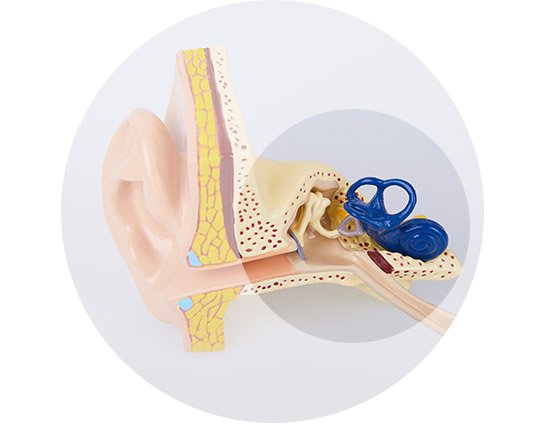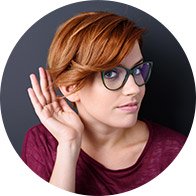Age-related hearing loss (presbycusis)

What is age-related hearing loss?
Age-related hearing loss (or presbycusis) is a form of hearing loss that occurs gradually during the aging process. Usually, this type of hearing loss affects both ears. Depending on certain factors, age-related hearing loss can start in a person's thirties or forties and usually increases gradually over time.
It is one of the most common conditions affecting older and elderly adults.


Book a complimentary assessment for age-related hearing loss
What causes age-related hearing loss?
Most commonly, it arises due to changes in the inner ear as you grow older. The following factors can influence age-related hearing loss:
- Genes
- Certain medical conditions
- Side effects of certain drugs and medications
- Age
- Smoking
- Repeated exposure to loud noises
Learn about other causes of hearing loss
Did you know?
While men are more likely to develop a hearing loss in higher frequencies, women often have hearing loss in lower frequencies.
The frequency of your hearing loss refers to whether you are having trouble hearing high-pitched or low-pitched sounds.
6 common signs and symptoms of age-related hearing loss
The signs and symptoms of age-related hearing loss can vary from person to person, but some of the most common symptoms include the following:

How is age-related hearing loss treated?
The best treatment option for someone with age-related hearing loss (presbycusis) will depend on the person's overall health, age and the severity of the hearing loss.
The most common treatment for age-related hearing loss is hearing aids, but the treatment may also include using assistive devices and/or learning lip reading techniques.
Book complimentary hearing assessment
Hearing loss treatment
How can you protect your hearing as you age?
Since age-related hearing loss is irreversible, prevention is important. Below are some of the most effective ways to prevent it:
- Avoid (or reduce exposure to) excessively loud noises
- Avoid smoking
- Seek treatment for hearing health conditions (such as ear infections)
- Wear ear protection in loud environments (ear plugs, earmuffs)
Find out more about the connection between hearing loss and dementia
Modern hearing aids for those with hearing loss
FAQs about age-related hearing loss
Sources
2. https://bmcgeriatr.biomedcentral.com/articles/10.1186/1471-2318-10-S1-L82









